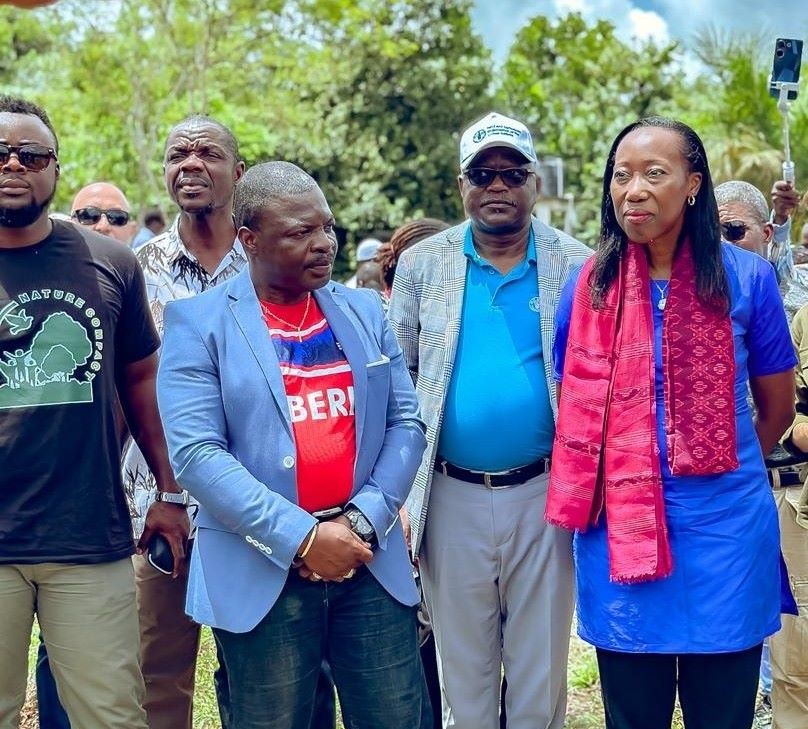PHOTO: Madam Georgia Wallen, World Bank Liberia Country Manager (first from right)
Remarks for World Bank Liberia Country Manager, Georgia Wallen
At Groundbreaking for Klay Hatchery in Bomi County
May 9, 2025
Honorable Ministers, Hon. Representative Williams, Honorable Madam Superintendent, Honorable Acting Director General of National Fisheries and Aquaculture Authority (NaFAA) and the excellent NAFAA team, Government Officials, Distinguished Guests, Partners, Ladies and Gentlemen:
Good afternoon.
It is an honor to join you for today’s groundbreaking ceremony for the Klay Hatchery. On behalf of the World Bank, I extend hearty congratulations to the Government of Liberia and NaFAA for your strong commitment and leadership in reaching this important milestone.
The World Bank is committed to supporting Liberia’s fisheries and aquaculture sector through the Liberia Sustainable Fisheries Management Project. And today, we mark a key milestone in this partnership.
The World Bank Group mission is to end extreme poverty and promote shared prosperity on a livable planet. As a development partner dedicated to promoting job creation, food security, and climate resilience, we view the construction of the Klay Hatchery as a strategic, high-impact investment. Liberia’s fisheries sector holds significant untapped potential; however, the current dependence on capture fisheries places pressure on marine ecosystems and increases vulnerability-particularly in the context of climate change and food insecurity.
The hatchery will serve as a cornerstone for the development of a robust aquaculture sector. It will provide a reliable, year-round supply of high-quality fingerlings, helping to ensure a stable source of affordable, nutritious protein for Liberian communities.
Importantly, the hatchery will generate jobs across the aquaculture value chain-creating meaningful opportunities, especially for women and youth. It aligns closely with Liberia’s broader sustainable development goals, particularly in food security, resource conservation, research, and capacity building.
Beyond enhancing food security, this hatchery has the potential to catalyze inclusive economic growth. It will empower smallholder fish farmers by enabling them to expand production, access markets more competitively, and improve their livelihoods. At the same time, it will reduce dependence on imported inputs and create opportunities for private sector engagement-laying the groundwork for systemic transformation and creation of more and better jobs.
From our perspective, this initiative is far more than an infrastructure project; it is a platform for growth, job creation, and sustainable development.
In closing, today’s efforts represent a shared investment in the future of Liberia’s fisheries and aquaculture sector-one that will contribute not only to this vital sector, but also to broader national prosperity and progress.

